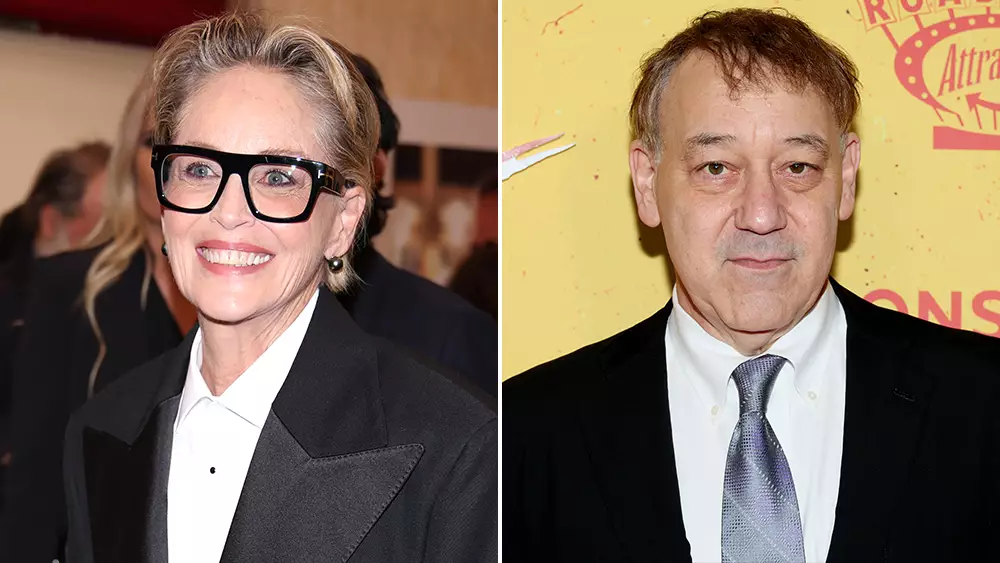In a revealing moment during the Torino Film Festival, actress Sharon Stone offered poignant reflections on her experience while making the 1995 film “The Quick and the Dead.” Stone, known for her compelling performances and significant contributions to cinema, illuminated aspects of the filmmaking process that often remain obscured: the dynamics between actors and directors and the broader systemic challenges women face in Hollywood. This retrospective not only highlights her achievements but also serves as a critique of the industry’s evolving landscape.
Stone’s comments regarding director Sam Raimi were particularly incisive. While she noted their professional collaboration, she also voiced a sense of disappointment over his perceived lack of loyalty. To Stone, loyalty is a cornerstone of professional relationships, and her contrasting experiences with Raimi and director Martin Scorsese brought this idea into sharp focus. She lauded Scorsese for his integrity and familial approach to filmmaking, indicating that such an attitude fosters long-lasting collaborations and artistic growth. In stark contrast, her sentiments about Raimi reflected a more transactional relationship, suggesting a breach in the foundational trust she values in collaborative endeavors.
“The Quick and the Dead,” despite its initial lukewarm reception and mixed critical reviews, has evolved into a cult classic. The film’s narrative revolves around a skilled gunslinger portrayed by Stone, who returns to a town besieged by corrupt power dynamics, seeking vengeance for her father’s unjust demise. Metal interplays of feminism and genre cinema abound here, as Stone’s character defies the passive roles often assigned to women in Westerns. Yet, Stone’s post-production reflections reveal the broader struggles that women in film face—not just on-screen but behind the lens as well.
After her foray into producing and the experience garnered from making “The Quick and the Dead,” Stone attempted to expand her creative influence by stepping into the director’s role. Unfortunately, she encountered significant barriers. Stone’s candid acknowledgment of Hollywood’s sexism and the obstructive attitudes towards female filmmakers speak volumes about the systemic challenges that have persisted over decades. Her assertion that her proposals were met with acclaim yet ultimately disregarded due to her gender is indicative of a larger trend that still resonates within the industry.
Sharon Stone’s legacy in cinema is undeniably profound. Her ability to bring attention to important issues surrounding gender, power, and loyalty within the filmmaking process resonates beyond the realm of her filmography. The juxtaposition of her experiences with Raimi and Scorsese reveals not just personal sentiments but a reflection of how relationships in Hollywood can profoundly impact a career.
Moreover, her insights evoke a critical examination of the industry at large. Stone’s observation that her intelligence was effectively sidelined as she navigated a landscape dominated by male decision-makers is a stark reminder of the pervasive gender biases that remain a topic of discussion today. The obstacles she faced in her quest to direct underscore a systemic failure—a chilling commentary on the opportunities denied to capable filmmakers simply based on gender.
As Stone continues to receive accolades and reflect on her storied career, her experiences serve as both a tribute to her resilience and a clarion call for action within Hollywood. The need for systemic change cannot be overstated, as artists like Stone strive not only for their own recognition but for an industry that genuinely welcomes diverse voices and perspectives.
In summation, Sharon Stone’s reflections are a powerful testament to her commitment to the craft and her unyielding spirit in advocating for greater opportunities for women within the film industry. As the landscape of cinema continues to evolve, her narrative serves as an essential reminder of the work that remains to be done, inspiring future generations to challenge the status quo and champion creativity in all its forms.


Leave a Reply